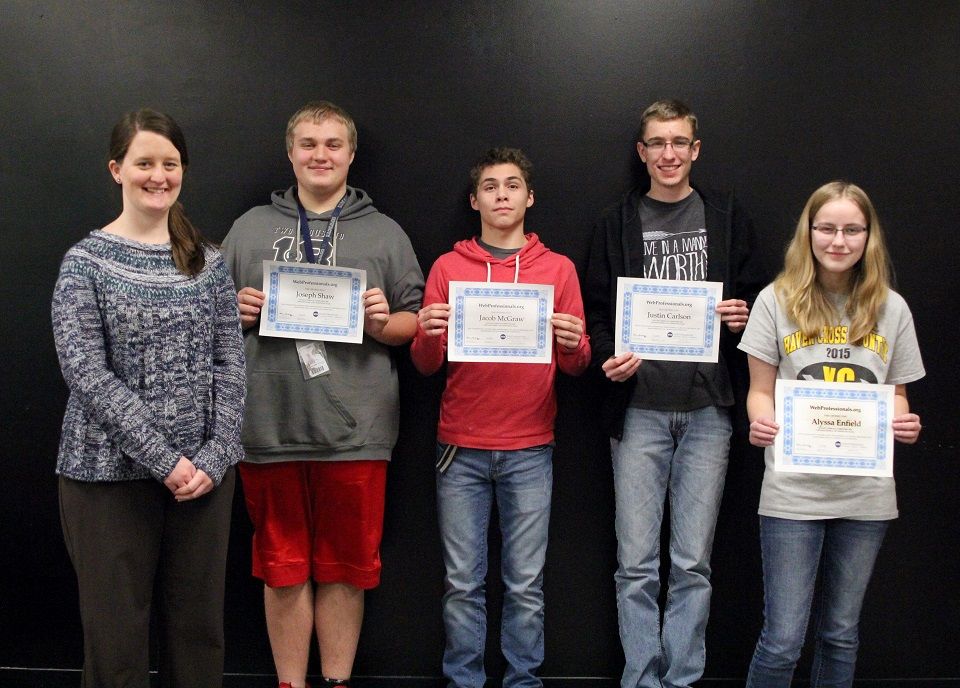Blog
50% by 2020 or Why we teach entrepreneurship in all our STEM Career courses.
rel="attachment wp-att-4800" id="1660008343">
Would you believe that by the year 2020 it is projected that roughly 50% of the workforce in the US will be comprised of freelancers? While it may seem hard to believe, according to a 2014 study commissioned by the Freelancers Union these numbers appear to be on target. According to that study there were 53 million Americans that are freelancers, which accounted for about 1/3 of the workforce for the country. Taking a look at future trends shows that by the year 2020 the percentage of workers that are freelancers will pass 50%. The STEM Career world is changing, and it’s important that our educational system changes to reflect that.
The current surge in freelancers is not something that our current generations of educators were trained to teach students about, which is a problem. It’s a problem because the world that students of today will be inheriting is one where freelancing is an important, if not outright dominant part of the workforce. We need to give our students the right information about any STEM Career they are interested in.
Moving Forward with STEM
Fortunately the nature of the changing STEM workforce is not going unnoticed by everyone in the education field. In fact some of the top STEM/STEAM educators that I spend time with on a regular basis are noticing the changing nature of how Americans are going to earn a living. They realize that the pathway that their student’s STEM careers move along will be far different than what was considered the norm just a few short years ago.
In my experience, most educators are well meaning. The fact that they were trained in a certain way of looking at careers sometimes locks them into a train of thought that doesn’t benefit their CTE students. Fortunately, like their students they do learn new things. The 50% by 2020 stat is clear. What has to happen is all our STEM and CTE educators need to broaden their concept of what may be the career model for their students. If our educators don’t help our learners to get this message, then it will limit their students’ ability to thrive in the modern workplace. We are now almost 20 years into the 21st century, and it’s time to embrace the future and begin to “Career Think” in bigger and broader terms.
A while back I delivered a series of key notes for schools focusing on the idea of “You Inc.” and how it’s important to always look in the mirror and see yourself not as a worker, but instead as an entrepreneur. Even when you are employed in a more traditional job you shouldn’t look at it as going to work, you should look at it as an employer paying you for your services. You aren’t being paid for your time, you are being paid for what you bring to a company. After all isn’t this what a STEM career is all about in the first place? It’s not how many hours you put in that matters to an employer, it’s how productive you were and how much you accomplished on their behalf.
I freely admit that some of the “You Inc.” talks I gave were influenced heavily by Free Agent Nation, a book written by Daniel Pink (a must read). The other driving factor was the fact that I am an entrepreneur myself and own and operate a software company focusing on online education. I have always had a core team of regular employees, and have always supplemented them with freelancers.
We need to be more Flexible
The 2008 economic crash made it more clear to me than ever before that companies needed to be more flexible and to use their resources in a more intelligent way. Having huge teams of employees is a tremendous expense, whereas hiring freelancers is much more cost effective. Businesses need to be agile, easily scaled up or down, and sustainable. Without these qualities, they are vulnerable to failing. Fortunately, when the recession hit, my company had already been practicing the concepts we are teaching, and for that, I am quite grateful.
Not long ago I was at a school speaking with students about how the nature of a STEM career is changing. Specifically that they should find things that they are passionate about and try to mold those interests into a career. By the way if you encourage students to focus on what they are interested in this is a great way to keep them engaged and attending classes. For example, in today’s freelance market you could be an animator, and by working from home you have the entire animation industry as potential employers. A STEM Career does not need to be tied to any one location.
Using our company as the example, Needless to say we are a STEM Career in action. I make sure to mention that only about 20% of our animation team is actually local for any projects were are working on. The remainder of the team live in various other states, and believe it or not many of them have never set foot in one of our offices, or spent any time with us or anyone else on our team. But despite the distance that separates us we are still engaged with our team, we know about them, their families, and their dreams. They are an essential part of our workforce, and we make sure that they know it.
Companies that want to succeed hire people for their skills as well as for how passionate they are about what they do. Since we believe that the trends for freelancing are accurate then we need to make sure we are teaching this to students. That doesn’t mean we can’t teach them about a traditional career path, it simply means we need to teach them to understand that freelancing is a legitimate alternative they may end up undertaking.
We also need to explain and emphasize how technology has bridged the gap between distant locations allowing people from all around the globe to work together. As educators, we need to tap into the passion that our students have and use that to help educate them and build a foundation for future success for them. We need to teach them to grow, to prosper, and to thrive in a changing world that is far different than the one we grew up in.
Have fun – Steve
BTW – Many of our Freelancers do have furry in-house support personnel!
Get in touch with us today!
You can book a demo directly using Calendly, call us directly at 913-764-4272 or 877-828-1216, or submit the form below and we will reach out to you.
We look forward to helping you and your students.

Most Recent Posts


About Us
Whether you are a big institution, small school or an individual seeking a new career path, our curriculum is for you.
Request a free demo of our curriculum today to see how you can help fuel our future world.
Get In Touch
PO Box 398 Olathe, KS 66051
hello@CTeLearning.com
Phone: 913-764-4272
Toll Free: 877-828-1216
Fax: 866-307-8112
Email: info@ctelearning.com
Quick Links
All Rights Reserved | Support Learning, Inc.
Web Design by Tekkii


